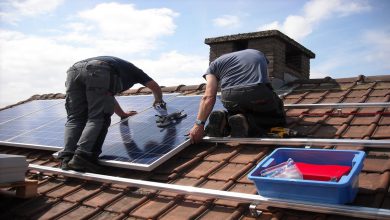
Have you ever found it difficult to breathe in your own home? Even if you are able to get all of the air you require, you may experience a stuffy feeling or find yourself breathing more forcefully than necessary. This could be due to poor indoor air quality (IAQ) or a variety of personal health issues; in any case, there are a few things you can do to improve your breathing.
Identify Sources of Pollution
First, identify any pollution sources that may be interfering with your ability to breathe normally. Is someone, for example, sautéing onions in the kitchen and filling the house with fumes? Are you chopping wood in the basement and spewing sawdust into the air? If this is the case, your breathing problems may go away once these activities stop.
If nothing stands out, you’ll need to proceed to the next step.
Use an Air Purifier
Purchasing an air purifier could be one of the wisest purchases you make this year. Air purifiers use high-quality filters to trap and remove particles from the air, allowing more clean air to circulate throughout your home. Depending on the MERV rating of the filter you’re using, the current quality of your air, and other factors, dust, dirt, dander, and other irritants may be completely removed from your indoor space. Your living space should benefit from significantly cleaner air with the help of an appropriately sized air purifier.
Open the Windows
If you’re still having trouble breathing properly or haven’t purchased an air purifier, open the windows. Sometimes a small amount of fresh air is all that is required to make your home feel cleaner and fresher. This will help to ventilate the house, remove pollutants and irritants from the air, and provide you with a greater sense of well-being.
Invest in a Humidifier
If you live in a dry climate or if the air feels particularly stuffy, consider purchasing a humidifier. Humidifiers vaporize water and disperse it into the air. You can increase the humidity in your living space and (hopefully) start breathing easier if you get an appropriately sized and rated humidifier. This is also beneficial if you are congested due to a cold or other illness.
Clean Regularly
Homes can suffer from poor IAQ simply because they aren’t cleaned frequently enough. You may clean the counters on a daily basis, but do you vacuum your carpets on a regular basis? Do you have the hardwood floors swept? This is especially important if you have allergies to pets or dust. Cleaning on a regular basis will reduce the amount of pet fur, dander, dust, and other particles in the air, improving air quality and, ideally, making it easier to breathe.
While you’re at it, make sure you get into all of your home’s nooks and crannies. Hard-to-reach areas, such as those behind refrigerators and other appliances, are frequently overlooked for long periods of time.
Check Your Cleaning Products
Cleaning is a good thing, but some cleaning products can actually make your situation worse. If you use aerosolized sprays or harsh chemical cleaners, you may end up with even worse breathing issues. Instead, use simple and natural cleaning products, such as baking soda and vinegar to make your own cleaning materials, or fragrance-free mild soaps to do the majority of your cleaning.
Get Your Air Ducts Cleaned
Air ducts should be cleaned at least once every few years for homeowners. Ducts are connected to your HVAC system and run throughout your home, circulating air to every room. If they become clogged with dust, dirt, and other debris, they will circulate those materials into the air, making it more difficult for you to breathe. If you haven’t cleaned your ducts in a long time, hire a professional to do it for you.
Use a Nasal Spray
If you’re still having trouble breathing after taking these other steps, you can try using a nasal spray. Just make sure to read the label; some nasal sprays discourage frequent use in order to avoid dependency issues.
Talk to a Doctor
If you’re still having breathing problems after trying all of the above solutions, it could be a health issue rather than a problem with your home. If you have a chronic breathing condition, an air purifier and a humidifier will only go so far.
Discuss your breathing problems with your doctor, as well as the steps you’ve taken to try to resolve them. They may have additional suggestions for how to address this issue so you can finally breathe easier.


